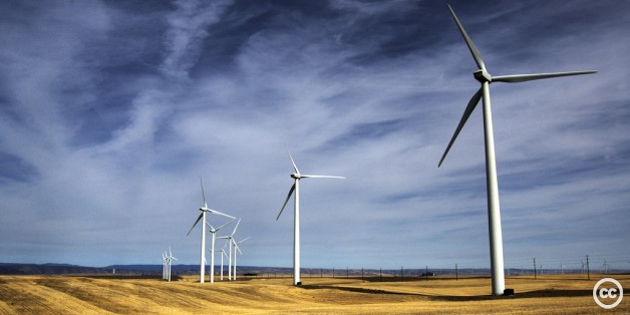The American Wind Energy Association of California (AWEA-California) released this statement today on behalf of Director Danielle Osborn Mills, following the announcement by Governor Newsom that he intends to “fast-track” the state’s clean energy transition in the wake of this summer’s heat waves and fires.
The state currently has a goal, established by SB 100 (2018), of shifting to 100% clean energy by 2045. In press remarks on September 11, the Governor said “I think 2045 is too late”—and noted that his Administration is “currently in the process of putting together new ideas, new strategies to accelerate our efforts, accelerate the application and implementation of commitments we’ve previously made, and to look at these stretch goals 2045 and see if we can pull them closer into the future.”
“Renewable energy providers are heartened by Governor Newsom’s pledge today to accelerate the state’s transition to 100% clean energy.”
“The heat waves, fires, and power outages of the past month have highlighted the urgent need to quickly transition to a renewable energy system—but more and more experts are recognizing that the state is falling behind when it comes to achieving this goal.”
“The newly released SB 100 Joint Agency Report shows how big the gaps are: California is going to need to double its current renewable energy capacity in the next seven years and build roughly 3 GW of solar, wind, and storage every year for the next 25 years to achieve its renewable targets.”
“Progress on this scale will require strong leadership—and a coordinated effort to update the state’s processes for quickly getting renewable energy and associated infrastructure projects planned, permitted, built, and connected to California homes and businesses.”
“There is plenty of renewable energy available in California and across the West for the state to meet its energy goals without compromising safety, reliability, or affordability. A great deal of attention has been paid recently, for example, to the state’s reliance on energy produced by the Diablo Canyon nuclear plant (2.28 GW) and four recently extended gas-fired plants on the Southern California coast (5.13 GW). More than 15 GW of high-capacity factor wind potential in the mountain states that can be brought online quickly to support California’s energy needs. And another 21 GW of high quality wind potential is on the horizon, 25 miles offshore—almost three times as much energy as these old legacy systems produce.”
“We agree with the Governor; we must do more and we must do it faster. With his leadership, the state can accelerate its transition to a cleaner, greener electric grid—but only if we act quickly to tap these reliable, renewable resources.”

